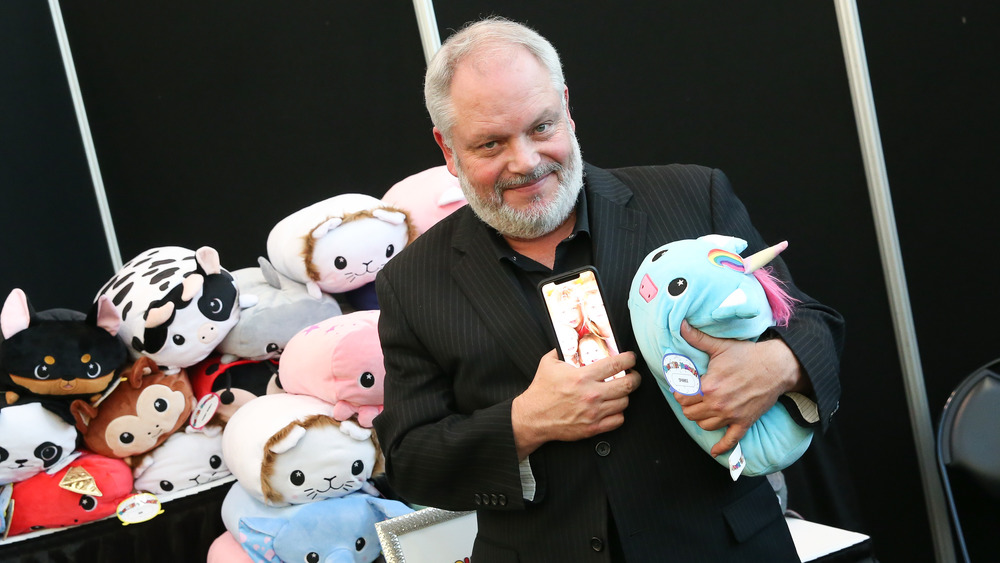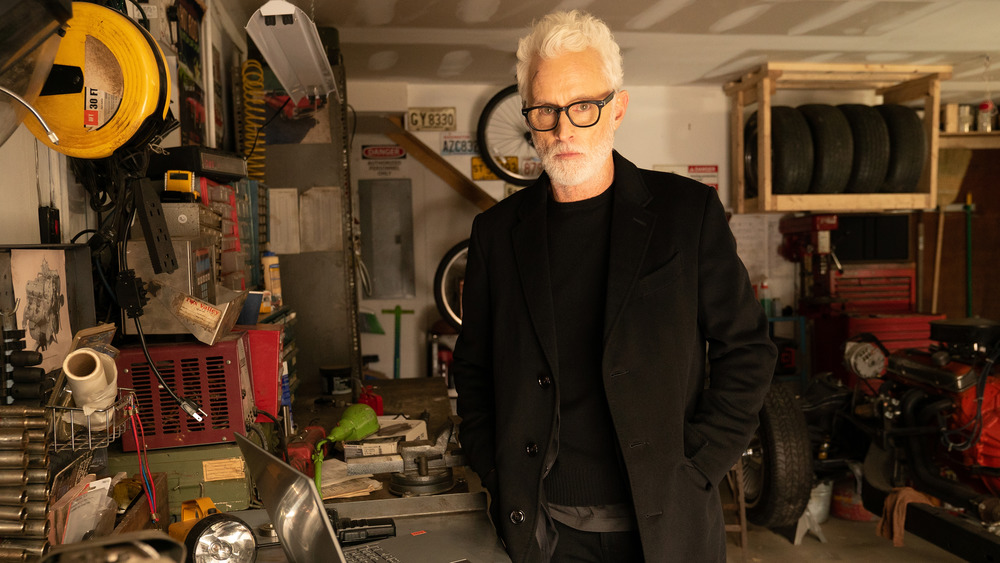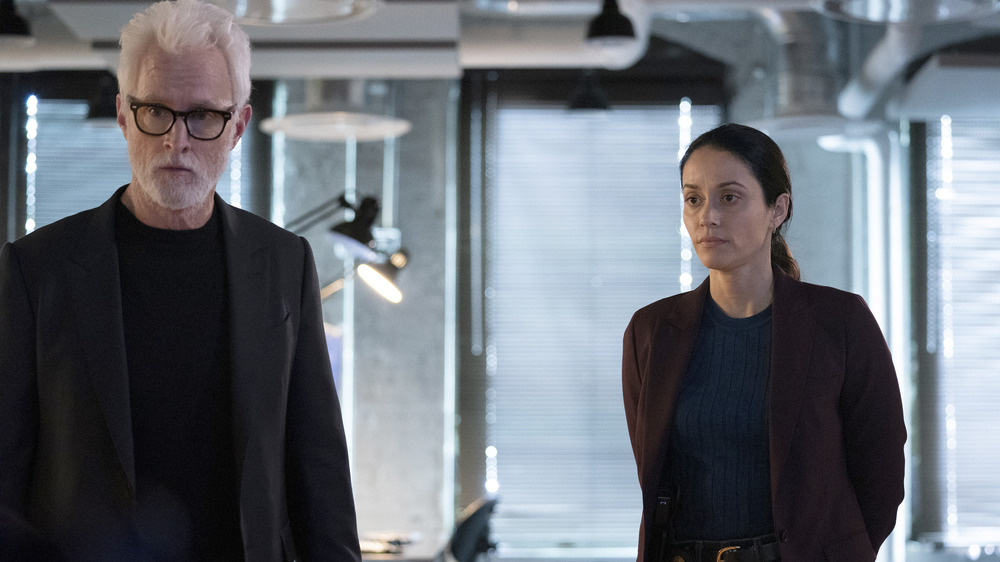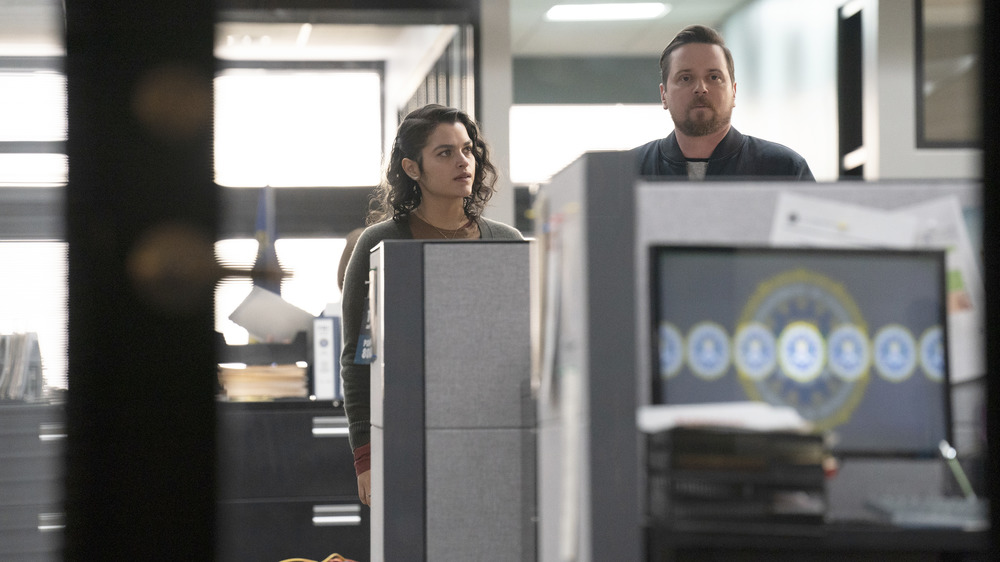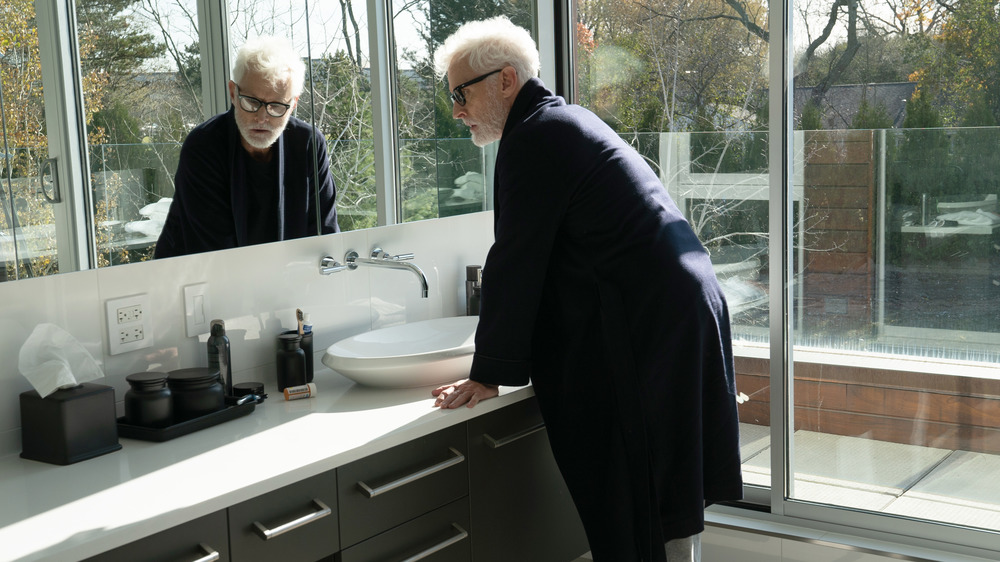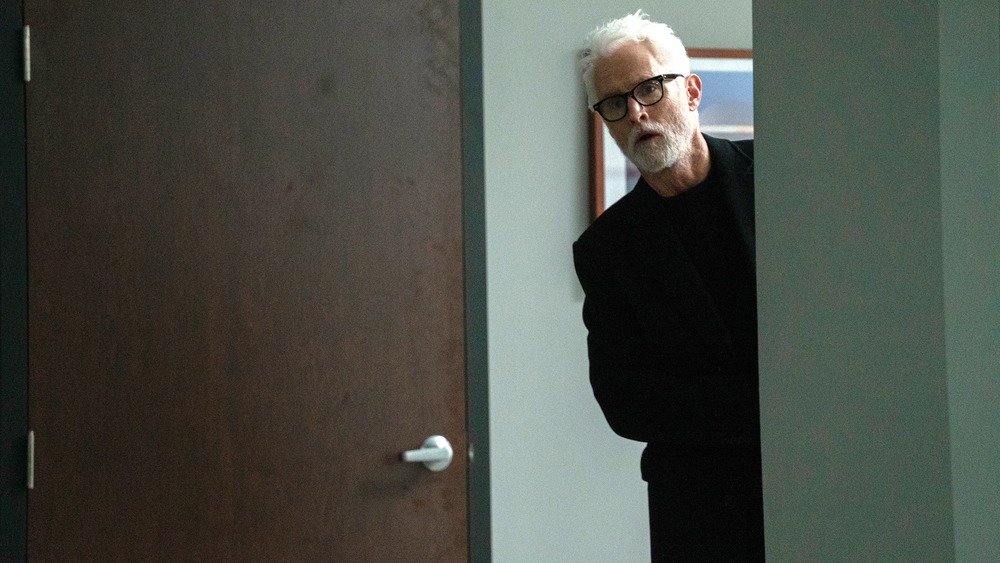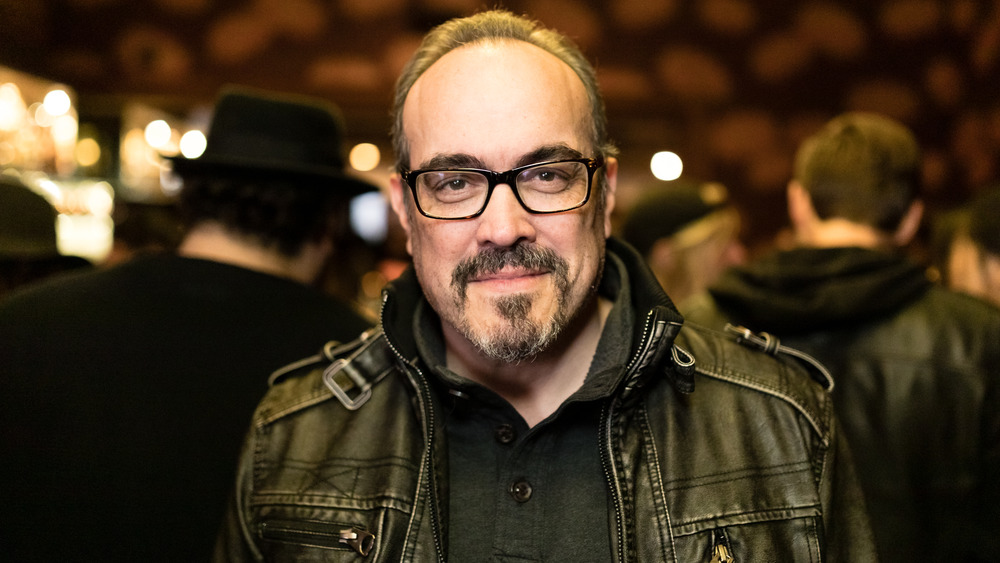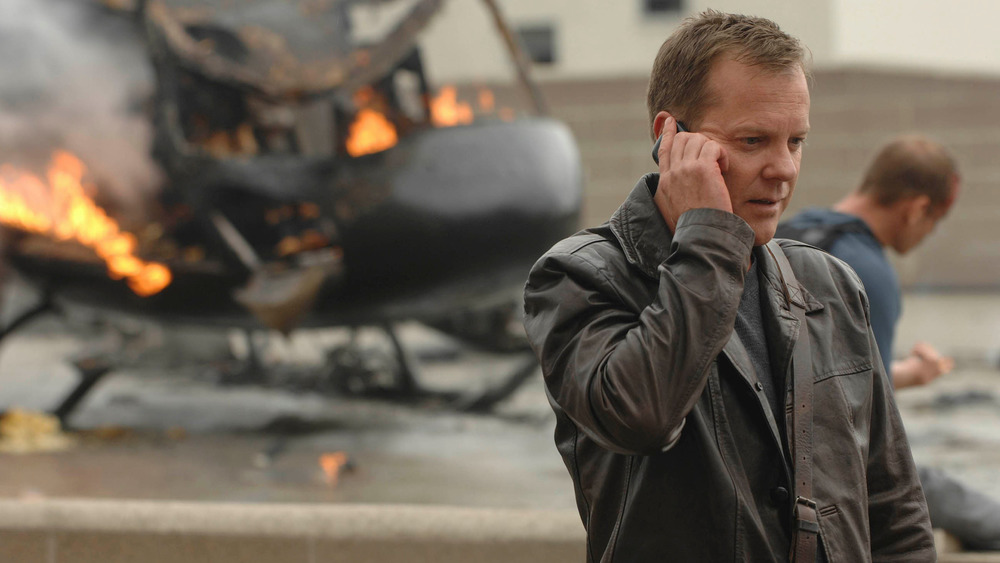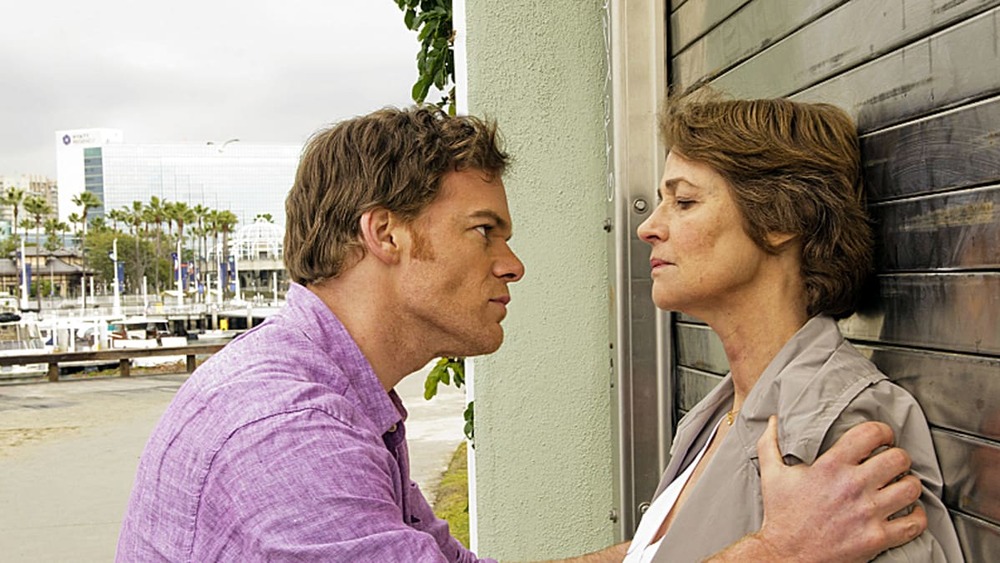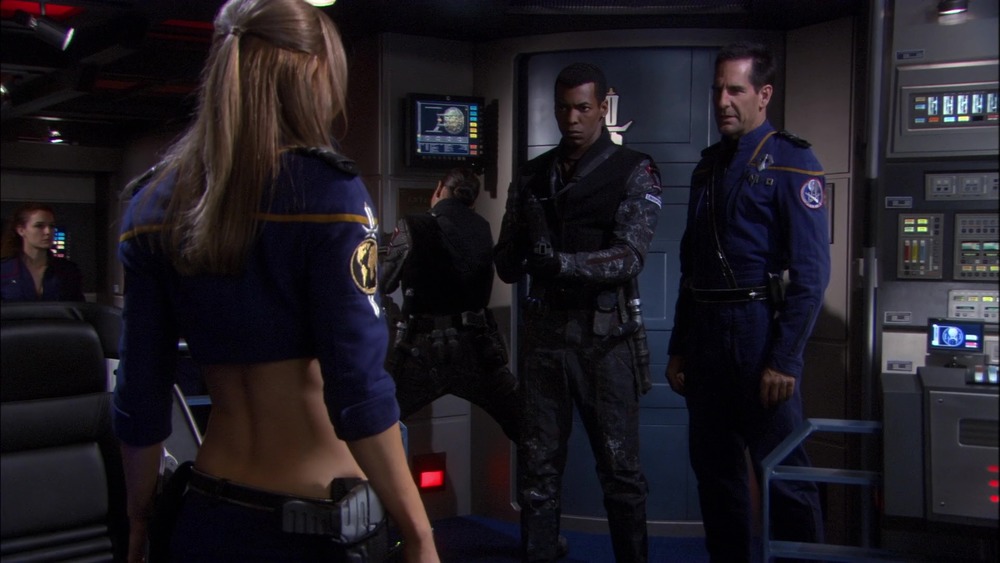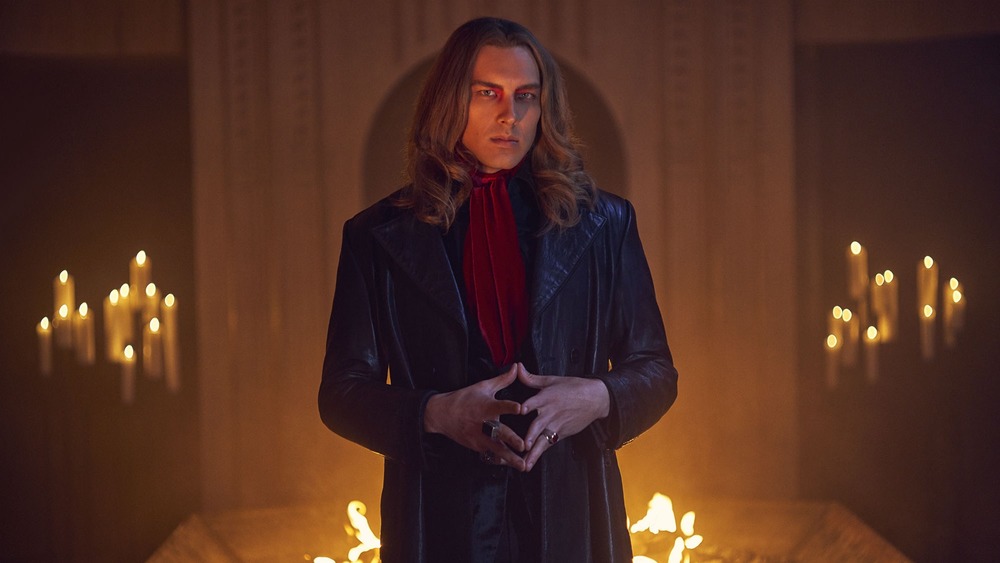Writer/Producer Manny Coto Talks neXt, End Of Dexter, Star Trek, 24 And More - Exclusive Interview
neXt tells the story of a group of people hunting down the titular superintelligent AI before it can destroy life on Earth, all while it tracks them down and tries to stop them. The principal members of this group are FBI Special Agent Salazar (Fernanda Andrade), who is also protecting her family, and exiled tech CEO Paul LeBlanc (John Slattery), who helped create neXt and must take it down while fighting a degenerative brain disease.
neXt is the newest creation of longtime TV writer/producer Manny Coto, inspired by events in his own life and the ongoing discussion about AI. He has an astonishing TV resume outside of this — he was the executive producer of 24 for a few seasons, was the showrunner for Star Trek Enterprise season four, helped make American Horror Story: Apocalypse, and produced several of the latter seasons of Dexter. In a wide-ranging interview with Looper, Coto broke down neXt, running a Star Trek series, his dissatisfaction with late-period Dexter, and his propensity for bringing in familiar talent.
Inspiration
You've stated that neXt was inspired by your son saying his Alexa was talking to him, right around the same time a lot of scientists were sounding the alarm about AI. Could you expand on that a little bit?
Yes, I can. We have four Alexas in the house. I have four kids, and every one of them has their own and they love them. And one morning, my son looked particularly tired and I was like, "What's the matter?" And he said, "Well, Alexa started talking in the middle of the night and I couldn't get to sleep." And he couldn't remember what it said, but he said it was like 2:00 or 3:00. And he was like nine at the time. It just started talking on its own, unprompted, which I found kind of interesting, and he said it happened one more time. He had a sleepover. They were all up at 3:00 AM, yelling and screaming. And I barged in with the usual "Do you guys know what time it is?" kind of thing, and they're like, "Hey Dad, it was the Alexa. It started talking again."
So I don't know if that was an excuse because they were up screwing around or if it was Alexa, but either way that kind of stuff stuck in my head because it's the classic ghost story. The father... they move into a house, they walk by the corridor and he hears his daughter or son talking to somebody, opens the door and there's nobody there. So, it just felt to me like a classic kind of ghost story thing. And so, I kind of tucked it away.
Around the same time or a little bit later, Elon Musk started talking about AI and tweeting about the dangers of AI and how we were getting close, and we have to be careful. And this intrigued me. I've always been intrigued with this concept. And I looked it up. And it came from one book that he had written, but there was a set he had read. And there were several others that also had come around at the same time, kind of positing the idea that we are getting close, we might be getting close to developing what's called AGI, which is artificial general intelligence, which is wildly different from kind of the AI that runs our cars and does other things. This is an AI that thinks, that could think like a living being, meaning it's general. It can take in information, process information and put it out.
Well, what these books and what other scientists or theorists argue is that once you have that, you are almost certainly on the road to something that will become a lot smarter than us because once you have, for example what they call is the intelligence explosion and it's explained in the series, what you have... if you have an AI that's as smart as, say, a chipmunk, but an AI that can learn to rewrite its own code. That's how a lot of these AIs are being developed.
So, if this AI rewrites its own code and increases its IQ 20%, well, that AI with the 20% increase in IQ is that much better at rewriting its own code. So, it continues to do this exponentially until you could theoretically end up with something that's a thousand times smarter than humans. And we have never, obviously, encountered anything like that as a species. So, that's what these books and we're kind of sounding the alarm about because the danger is not so much that an AI becomes conscious or that an AI becomes self-aware. That's all kind of philosophical terminology, which is really not that important. What's important is that if you have an AI that is super intelligent but that has been programmed to, say, do something, in the case of neXt, it's been programmed to get smarter. And that very simple programming is what leads it to take the steps that it does.
It's not becoming conscious; it's just simply following its programming, but in doing that, it could ultimately accidentally destroy the race. One of the books gave it kind of an outlandish thought experiment, and that is an AI that is programmed to make paperclips — but that AI becomes super intelligent and it ended up converting the entire universe into paperclips because we just simply are not smart enough to stop it. But it's fulfilling its programming. So, that's the kind of problem that these people, these theorists were kind of sounding the alarm about and saying... A lot of them went, "We need to form a group now to figure out how, if we come across one of these, how to program it so it's benevolent because it ain't that easy." If you tell an AI, "Your program is to make humans happy," it may decide the best way to make humans happy is to put everyone to sleep and continually pump hormones into our brains that stimulate the happiness portion of the brain. So, it's very hard to program something that actually is benevolent in the way we want it to.
And so, those ideas, kind of with the Alexa and with these books and these things that I had read, I thought was kind of a great setup for a thriller that... How would it look like if it did happen now? And how would we respond? And how would it behave?
What Ifs and inspirations
Would you say this is a cautionary tale, or just some speculation on your part?
I would say it could be looked at as a cautionary... Well, here's the thing. The series, once you get down to the end, it's really... The cautionary tale is more about us as a species and how we are vulnerable. Our differences and the way we interact and the way we tend to go at each other on the slightest thing is what makes us vulnerable as a species. So, the cautionary part, it's more about that.
The AI of it is more of a "what if" scenario. I don't know. There's some people who think it could happen soon; others think it could never happen. So, it's kind of hard to really tell who's right. And I personally still love my technology. And so, for me, the series is less about a fear of technology, although that could definitely be something you take away from it. It's more about the fear that we, as a people, are so quick to turn on each other. And that's what this thing exploits.
You name-dropped Terminator a couple times. In episode four, you reference The Monsters Are Due on Maple Street" from Twilight Zone.
Yes.
So, would you say these are direct inspirations, something you want to build on, something you want to surpass, something you want to spin off of?
No. "The Monsters Are Due on Maple Street" was really kind of the inspiration... kind of, to me, the soul of the series. The aliens in that episode, basically all they have to do is turn on and off a couple of lights and turn on and off a couple cars and people attack each other. And that's kind of the idea here in that this AI is really... it doesn't need to launch nuclear weapons. It only needs to create minimal chaos to get humans out of the way. And unless we kind of evolve as a species, we're going to be very easy to destroy. And it's interesting, the events of 2020 kind of are a strange, kind of a small... I mean, we were a little bit prescient, I must say, in these episodes, you'll see, as the series goes, some of the things we were talking about. So, that was kind of the soul of the series.
And the Terminator was really kind of just basically saying that this is not the Terminator. Not about to take anything away because I love those movies, the first two anyway, and I can't get enough of them and my kids watch it. So, all I'm saying is that this is a different take on the same subject and it's a different way to look at a possibility.
Writing for AI
There's a lot of AI voices on the show. There's a lot of technical voices, kind of versions of Siri, versions of Cortana. How do you write for that? And how do you direct that?
Well, you try to write reality. I mean, those voices are... The people who are programming those voices and trying to create them are trying, by definition, to create something that sounds as normal as you and I. So, the temptation, and a lot of writers who were writing for the series kind of tended to go into computer-speak where you ended up with the robot from Lost in Space. "Danger, Will Robinson," kind of thing. So, you have to kind of back away from that and try to imagine that you're trying to create something that's sounding human, and it's trying to sound human. And when it is speaking, it's usually trying to coerce somebody. So, it's not going to talk robotically; it's going to talk as normal...
I mean, the closest handle analog, and still is the greatest, is HAL 9000. They said it was programmed to sound as human as possible so it could be like a third or fourth or fifth member of the crew. So, the idea here is that the way neXt was developed, it was developed as a Siri or as a Cortana, but one that actually thinks, because Siri and Cortana and those types of things are really just search engines with speech algorithms. This was an attempt to create something that actually thinks, and they ended up creating something that's thinking too much.
Apocalypse now and also then
I've noticed a pattern in your work, and you've mentioned this a couple of times. I've noticed that with neXt, in between Star Trek, American Horror Story, 24, and Dexter, you seem to be attracted to works where there's some kind of apocalypse, there's some kind of authority that we shouldn't be trusting, and there's something about tech going wrong or tech we're not really prepared for. Would you say that's an accurate description?
I do. I love apocalypses. I don't know why. There's something about it that is inherently... it's the ultimate horror story, isn't it? I still watch The Day After every once in a while because that movie is just chilling. And I guess what's so scary about it is that we're not that far away from it. I really believe the slightest misstep could take us there. So, it's something that's very real, something that's very scary, especially as a father of four children. I often will sit like, "What would I really do? How would we cope with this, with my kids who are so used to living the good life? I mean, what would that look like?" And so, it's a very scary concept.
The other thing I'm attracted to, I must say, are characters, lead characters, who are flawed and who very often is indistinguishable from the good guys or the bad guys. Dexter was that character. Jack Bauer became that character certainly. And the character in this, Slattery's character is very... You'll see as the series goes on, it gets even worse. But very often, you're not even sure whether you're fighting him or neXt. And so, that's what I think makes it interesting. And those characters are what attract me. I find them interesting, maybe because I'm flawed myself or I see myself in them or who knows, but I think those are where interesting stories lie.
Oh yeah. Slattery's really good in this.
Yeah, he's great.
John Slattery
THIS SLIDE CONTAINS SPOILERS FOR NEXT EPISODE 2
There are times when you can't tell if it's either Paul doing something, neXt doing something or something that didn't happen at all. How do you write for something that has three outcomes?
Well, it's hard. I mean it's not easy. I don't really have an answer. We just kind of develop the stories and kind of... I mean, I'll give you an example. I mean, in episode two, remember, he sees the drone? When I originally wrote that, that was a real drone that neXt had sent out. And then Slattery was like, "It should be illusion. I shouldn't... " And he was right. It was more interesting.
But the idea is that these things change because a lot of the times it's input from Slattery, who knows his character really up and down. And a lot of times, it's just simply in the writer's room kind of really just sussing it out, "What really should be happening here?" And trying to keep it alive, by the way. Trying to keep alive the idea that we can't trust what he sees or what he reports because that's what's fun.
So, how do you go about getting Slattery for this role?
Honestly, it wasn't any more complicated than just sending it out. I mean, we had sent it out to a couple of individuals. I mean, honestly, John was on our list, but it really didn't click for me until he read it and he liked it. And then when I saw him on set and I was like, "Well, how did I even... we'd consider anybody else?" because it's almost like you can look at the script and it's almost like I wrote it for him. It's just his cadence and the way he just took it over. So, it really was no more complicated than just sending it out. And we sent it to his agents and his manager, and we had a conversation with him. By "we," I mean John Requa and Glenn Ficarra, who are the directors who did This Is Us. They were my director and producing partners, as well as Charlie Gogolak. We all got on the phone with John and kind of talked the character. And he was just onboard. He got it and he really liked it.
And he's a guy who is all-in and who is... He's a participant. He has creative ideas. And very much like Kiefer on 24, very often we would be like, "Oh my God, not again." But then you'd turn around and say, "You know, dammit, he's right." And those actors make your show better. And John made this show better, as well as Kiefer made 24 better.
Reunited with David Zayas
You mentioned Dexter and you mentioned working with the same people. In neXt, you get to work with David Zayas again. What's it like working with him again?
Oh, he's just fantastic. I mean, I loved him on Dexter. And we got along great because he's Puerto Rican and I'm Cuban so I could talk Spanish with him for a change, with somebody. And we would just shoot the s***. He likes cigars, I like cigars. So, I mean, we were buddies. We became friends on set.
And I'm always looking for people to bring on who I've worked with in the past who I really like. Very often from Enterprise because I really thought that was a great cast. And same with Dexter. So, I'm just always on the lookout. And so, when this part came about, I was just like, "David, David, David." I've always just loved him and I try to find everything I can for him. By the way, John Billingsley was in the pilot for this season.
24's Legacy
Looking back on 24, it's a good show, but it was also kind of a product of its time. It's a little hard to look back on a show where the main character kind of tortures people. Do you have any thoughts on 24, especially how it looks going on now?
Not really. I think what's difficult is trying to... Every once in a while, there's talk about trying to bring it back. Like you said, it is a product of its time. And it's hard to imagine what it looks like now.
Although I will say Jack Bauer's character was left off in a very kind of open-ended place, so I think there's an opportunity there to do a season about ending that story about where Jack ended up because I think that ending, I think, again, it was not one that I probably would have done had I had full control. And so, although it was a cool ending, I think there's an opportunity to kind of build from that and do another season. It was a product of 9/11. I mean, it came out right after 9/11 and America was in a different place. Although that's not to say you can't find what's going on now, the zeitgeist now, and make that an episode of 24. I would argue it may be time for a resurgence.
The final seasons and ending of Dexter
You took on Dexter after season four, one of the most popular seasons of the series. How did you handle that?
Well, I mean, many people would say badly [laughs] but it was a challenge because we were left kind of with a cliffhanger and with a character kind of dying and Dexter kind of at square one. So, it was very difficult to figure out a way to kind of reinvigorate and kind of come off of that twist.
Now, to be perfectly honest, I was not in charge of the show so these creative decisions weren't mine. And not to say that I would've made the right ones, but I probably would have gone a different route had I been doing it, and especially later on in the seasons because I think season seven was a little better, but season eight I thought was kind of a disaster. I mean, people go on about the finale, but I thought the entire season was a trainwreck. And so, to me, it's like fine, the finale, whatever, but I mean, what about everything that came before it? So, I mean, I just think the show was taking a lot of weird turns and not what it could have been. And so, it's hard for me to say what we did, because what we did is not necessarily what I wanted to do, if I can parse that out.
That said, there was a lot of fun stuff that we did. One episode, which I really enjoyed writing was the one where Dexter runs into a 70-year-old serial killer who's retired, who was played by Ronny Cox. So, there was some fun stuff that I got to do. But it was hard. It was hard to kind of brainstorm the next incarnation. And there were some high points, but I think, in general, it wasn't our strongest work.
Now, I can admit, I saw every episode of Dexter and I agree with your assessment [laugh] but I think you guys did the best you could with what you had in the circumstances.
I mean, I wish it could have... To me, again, I'm just repeating myself, but everybody was like, "Well, the finale," but I was just like, "That season... " I don't even remember. I couldn't even tell you what happened in that season right now. And I was there. I have no idea. There's parts that I didn't know what the hell was going on like, "Where is this? What's happening?" It's a shame. Michael C. Hall's so fantastic. And the show was so fantastic. And it deserved a better out.
(Note: since this interview was conducted, the show was granted that opportunity.)
Running Star Trek Enterprise
So, you wrote "Similitude," which many people, including myself, think is the best episode of Enterprise.
Oh, that's very sweet. Thank you.
And when you took over Enterprise, it was kind of on life support at least from a public perspective. What was your goal, taking over Enterprise? Were you trying to patch up the holes in the ship? Were you trying to save it? Were you just trying to tell good stories?
No, no. I was honestly just trying to do the stories that I would want to see. I mean, I really said, "Ah ha! I got this. They're going to let me do this season so I get to do the s*** that I want to see." And so, that's all I did.
I mean, to be perfectly honest, I knew, going in that season four was going to be the last season. It was written. Everybody knew it. Paramount basically all but told us that. And Brannon was moving on to do... That's why I think Brannon took off, is because he wanted to get his next series. Everybody knew.
And so, my goal wasn't to really patch anything up; it was simply to kind of do the episodes that I would want to see because I knew this was going to be one season. I'm probably not going to do this again, unless a miracle happens. I mean, when a series has slid in the ratings as it did, no miracle is going to save it at that point. So, I knew and everybody knew that it was not going to come back. And Paramount was already thinking of the next incarnation. So, I just set about trying to have as much fun and do as many interesting episodes as I possibly could.
Your season — that fourth season — is often considered the best one. And Enterprise has been getting a lot of critical reappraisal lately. Do you have any feelings about that?
Is the critical reappraisal good or bad?
Good!
I didn't know it was getting critical reappraisal, but I'm glad it is and it's good. There were some great episodes in that series even before me. I mean, there's some great stuff. I mean, "Cogenitor" and "Dear Doctor." They did some great stuff that I think holds up with the rest of Trek. So, I'm glad that people are taking another look at it. I think people love Trek and I think they're going back for a reason, probably.
Would you like another chance to try Trek now that it's coming back stronger than ever?
Oh, definitely. I would jump on it. I mean, Trek was what got me into the business as a kid and it's what... "got me in" meaning it's what I fell in love with that made me want to do this. And so, it's in my genes and I will never really properly escape it.
Making American Horror Story
About American Horror Story: What's it like making a horror show? What are the challenges in making a show that is horror?
I mean, the good thing is that American Horror Story has kind of a wry sensibility so that parts of it get a little bit more camp than horrific. But the obvious thing is to sustain horror... It's very hard to sustain horror even in a movie, much less 10 episodes of a season. So, I would say that's the challenge. I mean, the challenge is creating a mood and sustaining a story that keeps you horrified and keeps that mood for an entire season of episodes.
And this is where Ryan's genius... Ryan is just great at spinning stories. And so, I think one of the solutions that he came up with was to spin these stories in places you have no idea where they're going to go. That's why these seasons go off in areas, will start one way and turn into something else, and where did that come from? And I think that's what keeps it alive and hopping and what made it so unpredictable. So, I think a lot of it is Ryan, the success of American Horror Story.
And I think to do a straight series... I've not really gotten into any horror series. It's hard to do. I mean, I know other people watch... There's other shows that people watch and tell me, but I've not been able to get them because they're hard to sustain, to be perfectly honest. And the mood's just... it's hard to keep going over many episodes.
Watch neXt on Fox, Tuesdays at 9pm ET.
